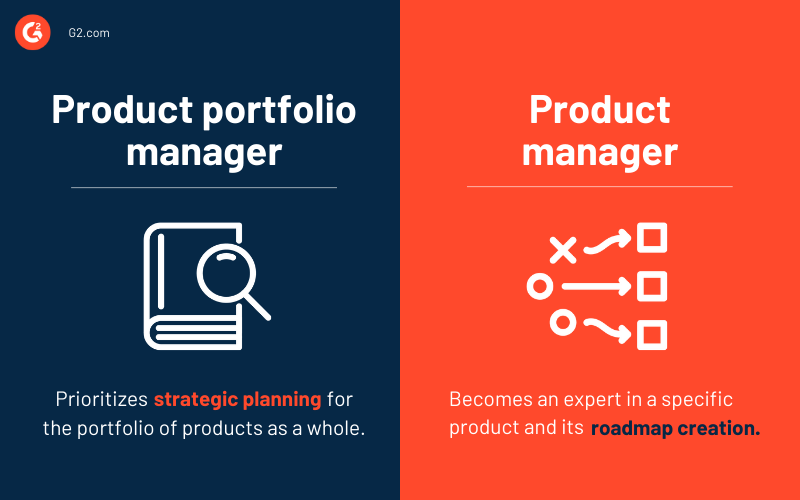
Difference Between Product Management and Portfolio Management: A Comprehensive Guide
Introduction
In the dynamic Guide landscape of modern business, effective management strategies are essential for success. Two concepts that often arise are “product management” and “portfolio management.” While they may sound similar, they serve distinct roles within an organization. This article explores the fundamental differences between these two critical aspects of business management.
Table of Contents
| Heading |
|---|
| Understanding Product Management |
| The Role of a Product Manager |
| Key Responsibilities of Product Managers |
| The Art of Portfolio Management |
| Responsibilities of a Portfolio Manager |
| Distinguishing Features |
| Benefits of Effective Product Management |
| Advantages of Sound Portfolio Management |
| Achieving Business Objectives |
| Metrics for Product Success |
| Measuring Portfolio Performance |
| Effective Communication |
| Collaborative Teamwork |
| Adaptability and Flexibility |
| Resource Allocation |
| Risk Mitigation Strategies |
| Decision-Making in Product Management |
| Decision-Making in Portfolio Management |
| Challenges in Product Management |
| Challenges in Portfolio Management |
| FAQs |
| Conclusion |
Understanding Product Management
Product management involves overseeing the development and lifecycle of a specific product. It focuses on ensuring that the product aligns with customer needs and business objectives.
The Role of a Product Manager
A product manager plays a pivotal role in product management. They act as a bridge between various teams, such as marketing, development, and sales.
Key Responsibilities of Product Managers
Product managers are responsible for defining product features, prioritizing tasks, and ensuring timely delivery. They also analyze market trends and competition.
The Art of Portfolio Management
Portfolio management, on the other hand, involves managing a collection of projects and products, often within a broader strategic context.
Responsibilities of a Portfolio Manager
A portfolio manager oversees multiple projects, ensuring they align with the organization’s strategic goals and are executed efficiently.

Distinguishing Features
The primary distinction between product and portfolio management is the scope. Product management focuses on individual products, while portfolio management deals with a collection of products or projects.
Benefits of Effective Product Management
Effective product management can lead to Guide product success, increased market share, and enhanced customer satisfaction.
Advantages of Sound Portfolio Management
Sound portfolio management ensures that resources are allocated strategically, reducing risks and maximizing returns.
Achieving Business Objectives
Both product and portfolio management contribute to achieving business objectives, but they do so in different ways.
Metrics for Product Success
Product managers often use metrics like customer satisfaction, sales, and market share to measure success.
Measuring Portfolio Performance
Portfolio managers assess performance through metrics such as return on investment (ROI) and alignment with strategic goals.
Effective Communication
Both roles require effective communication with stakeholders, but the focus differs. Product managers communicate product details Guide, while portfolio managers discuss strategic alignment.
Collaborative Teamwork
Collaboration is key in both disciplines. Product managers Guide collaborate with cross-functional teams, while portfolio managers work closely with project managers.
Adaptability and Flexibility
Adaptability is crucial in product management to respond to market changes. Portfolio managers need flexibility to reallocate resources as needed.
Resource Allocation
Portfolio managers decide how to allocate resources across multiple projects, ensuring optimal resource utilization.
Risk Mitigation Strategies
Product managers identify and mitigate risks associated with their specific product. Portfolio managers handle risks at a higher, strategic level Guide.
Decision-Making in Product Management
Product managers make decisions regarding product features, pricing, and release schedules.
Decision-Making in Portfolio Management
Portfolio managers make decisions about project prioritization, resource allocation, and alignment with strategic goals.
Challenges in Product Management
Product management faces challenges like balancing customer requests and technical constraints.
Challenges in Portfolio Management
Portfolio management challenges include resource constraints and ensuring alignment with overall business objectives.
FAQs
What is the main difference between product management and portfolio management?
Product management focuses on individual products, while portfolio management involves overseeing a collection of projects and products within a strategic framework.
What are the key responsibilities of a product manager?
Product managers define product features, prioritize tasks, and ensure timely delivery. They also analyze market trends and competition.
How does effective portfolio management benefit an organization?
Effective portfolio management ensures that resources are allocated strategically, reducing risks and maximizing returns.
Can a product manager also be a portfolio manager?
In some organizations, individuals may take on both roles, especially in smaller companies. However, in larger enterprises, these roles are typically separate.
What metrics are commonly used to measure product success?
Product managers often use metrics like customer satisfaction, sales, and market share to measure the success of a product.
How can a portfolio manager ensure that projects align with the organization’s strategic goals?
Portfolio managers assess projects based on their alignment with strategic goals, ensuring that only projects contributing to these goals are prioritized and executed.
Conclusion
In conclusion, understanding the difference between product management and portfolio management is vital for effective business management. While product management focuses on individual products, portfolio management deals with a collection of projects and products within a broader strategic context. Both roles play critical roles in achieving business objectives and require skilled professionals who can navigate the unique challenges and responsibilities they entail.

